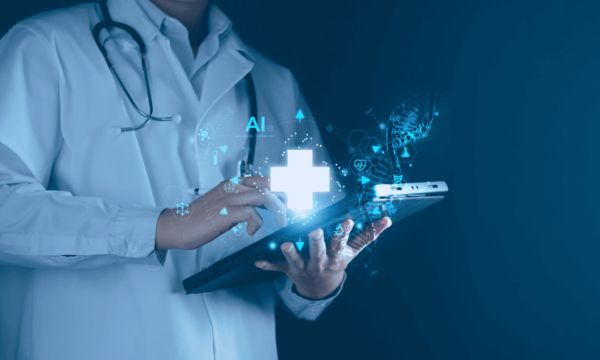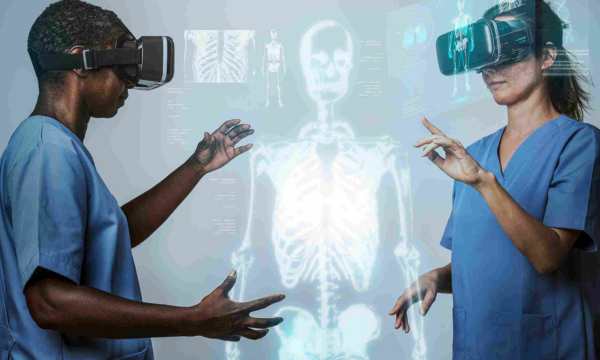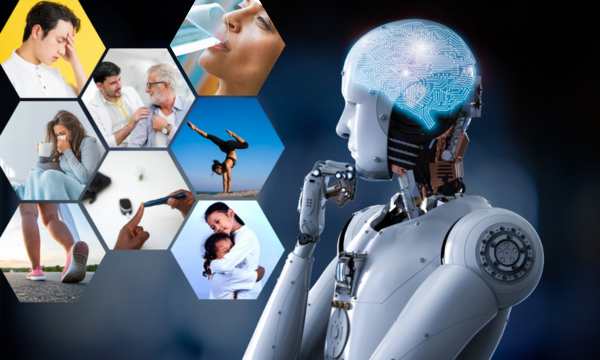6 AI Health Tools Revolutionising Patient Care Now!
In the rapidly changing world of healthcare, artificial intelligence (AI) is a shining example of new ideas. Advanced tools and technology are changing the way patients are cared for.
Ad
This article discusses six artificial intelligence health tools that are changing the way doctors assess, treat, and talk to patients.
These tools demonstrate how artificial intelligence can improve patient outcomes, accelerate medical processes, and usher in a new era of personalized medicine.
1. Diagnostic system using AI
Diagnostics is one of the key ways AI is transforming healthcare. Artificial intelligence algorithms can view medical images faster and more accurately than radiologists.
Tools like Google DeepMind allow scanners to detect diseases such as cancer and eye diseases with great accuracy.
These systems not only speed up the assessment process but also make it more accurate. By identifying problems early, these systems can save lives.
2. Health monitoring devices you wear
Wearable AI devices are changing the way patients are monitored, providing real-time information about their vital signs, activity levels, and even sleep habits.
These gadgets can detect strange things that could indicate a health problem, so help can be provided immediately.
Fitbit and Apple Watch are two companies that use artificial intelligence to view health data and provide users with information about heart health, possible atrial fibrillation, and more in their daily lives.
3. Customized treatment plan
Artificial intelligence enables personalized medicine by looking at large amounts of data such as genetic information, medical records, and even lifestyle habits to ensure that every patient receives the best care.
This approach not only makes the treatment more effective but also reduces side effects. As platforms like IBM Watson Health show, AI can provide treatment plans for cancer patients based on their unique genetic makeup. This can have a major impact on the chances of survival.
4. Health assistants who work online
AI-powered virtual health assistants and chatbots provide patients with immediate assistance 24 hours a day, 7 days a week. They can answer health-related questions, tell patients to take their medications, and even monitor their mental health.
These assistants, such as Ada Health and Babylon Health, provide patients with a basic diagnosis based on their symptoms and tell them whether they should see a doctor.
This makes it easier for people to access care and can reduce unnecessary hospital visits.
5. Robotic surgical assistant
When artificial intelligence is added to robotic surgery, the surgery becomes more precise and less invasive. This means faster recovery times and fewer problems.
Artificial intelligence robotic systems, such as the da Vinci Surgical System, can help doctors be more precise and responsible, making complex surgeries safer and more effective.
The AI part analyzes data in real-time to help doctors make informed choices during surgery.
6. Application of AI in drug discovery and development
The process of finding new medicines is long and expensive. Artificial intelligence (AI) is about to change that, making it faster to find potential drugs and guess how effective they will be against diseases.
AI platforms like Atomwise use algorithms to guess how different compounds will interact with targets in the body.
This accelerates the early stages of drug research, giving patients faster access to life-saving medicines.

AI Health Tools (Source- Google)
Conclusion
Adding artificial intelligence to healthcare is more than a small change; it is a giant step forward in the way patients are cared for.
These six AI health tools show how new ideas can be used to more easily identify diseases, create personalized treatment plans, improve surgical outcomes, and even simplify drug production.
As technology continues to develop, artificial intelligence appears to have a lot of potential in healthcare. It has the power to improve patient care.
The role of artificial intelligence in healthcare is rapidly changing, and in the future, technology and human knowledge will work together to provide the best care.
The task now is to ensure that everyone has equal access to these technologies, address ethical issues, and train healthcare professionals in the use of AI. This will ensure that everyone in healthcare can benefit from these revolutionary tools.
FAQs
1. What are health tools that use artificial intelligence and how do they work?
The latest software and systems that use artificial intelligence to improve healthcare are called AI health tools. They look at large amounts of data to spot trends, guess what will happen next, or suggest options.
Some examples of these tools include diagnostic algorithms, patient-centered systems, personalized treatment plans, and software that handles your daily tasks for you.
2. Can AI health tools identify people’s problems better than doctors?
In some cases, AI health tools can identify certain diseases as well as or better than human doctors. This is especially true when looking at X-rays and MRIs.
But they are generally only used to support and improve the medical process, and not to completely replace human judgment.
3. Can anyone use AI health tools?
Accessibility varies depending on the device and region. There are AI health tools that doctors and nurses can use in hospitals, and there are also tools that regular people can use through apps or wearable technology.
Government approvals and the state of the healthcare system also have an impact on supply.
4. How can AI health tools make care more targeted for each patient?
AI health tools tailor care to each patient by looking at their genetic information, life factors, and health history.
This makes it possible to develop treatment plans specific to each patient, leading to better outcomes and more effective care.
5. How do artificial intelligence healthcare tools impact patient privacy?
Artificial intelligence healthcare tools can have a significant impact on patient care outcomes, but they also raise important privacy concerns because health data is so private.
Ensuring data is used ethically, keeping patient data secure, and complying with privacy laws are all major issues that developers and healthcare professionals must address.
6. How can patients ensure AI health tools keep their information safe?
Patients should ensure that any AI health tools they use have clear privacy policies and that their data is encrypted, stored securely, and only shared with consent.
In addition, they should know what rights they have under the health privacy laws and regulations in their region.
7. What are the problems with our current AI health tools?
The need for a lot of different types of data for learning, the possibility of bias in the data itself, the integration of AI into current healthcare systems, and the need for humans to interpret AI recommendations in order to hold patients accountable are some issues with AI. connected The relationships with healthcare providers are continuous.
 Sleep Monitoring: Discover How AI Can Improve Your Rest
Sleep Monitoring: Discover How AI Can Improve Your Rest
Sleep monitoring can explain why you may wake up tired even after long hours in bed. Ad […]
More How AI and Virtual Reality are Transforming Medical Training
How AI and Virtual Reality are Transforming Medical Training
With each new technology, the field is expanding and new teaching methods are emerging, making medical training […]
More How AI Helps Create Lasting Healthy Habits
How AI Helps Create Lasting Healthy Habits
Building healthy habits doesn’t have to be complicated, especially when artificial intelligence can be your ally on […]
More